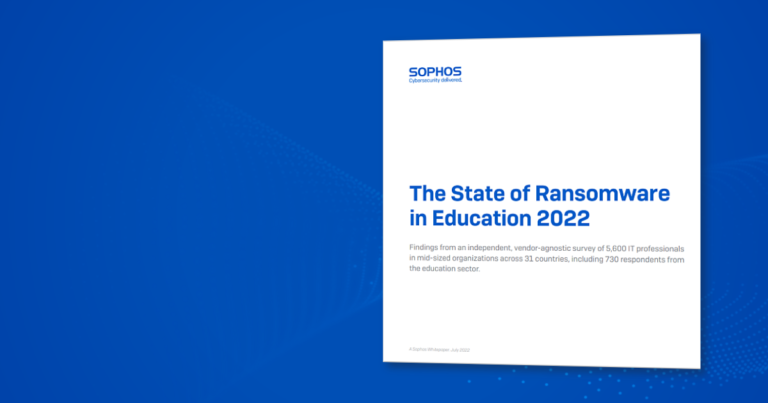Security is still a major issue for women in Africa’s gig economy

Women in Africa are using online platforms as a critical source of income now more than ever. Jumia, Africa’s largest e-commerce platform, recently announced that women make up 51% of its vendors and account for 33% of total merchandise sales between 2019 and 2020.
The African ecommerce sector was valued at $20 billion (pdf) in 2020 and is expected to grow to $84 billion by 2030.
According to a study conducted in Nigeria, Kenya, and Cote d’Ivoire, there are more women-owned businesses on social media (61 percent) than men-owned businesses (51 percent), which is attributed to low entry barriers. Women are also joining ride-hailing platforms as drivers, breaking down structural barriers in a male-dominated industry.
Furthermore, many young women on the continent are providing professional services through freelancing and on-demand labor platforms. According to the ILO, four out of every ten workers on online and web-based platforms worldwide are women.
However, the shift to platform work for women brings with it its own set of challenges, the most important of which is safety. Women’s safety concerns in the online world unfortunately mirror those that they face on a daily basis in the real world.
Olivia, a Nairobi-based delivery person who also worked as a ride-hailing driver for two years—both on bikes and in cars—says, “Some customers pretend to be afraid of the motorbike and hold you and start caressing you.” They take advantage of you and assault you sexually.”
In addition, Olivia says she stops riding at 7 p.m. because she is afraid of being physically assaulted on the job.
Safety concerns for women online mirror safety concerns in real life
Bama Athreya, an expert on platform labor and gender equity writes in Bias In, Bias Out, “The platform economy fundamentally benefits from the same patriarchy that has benefited prior sectors. It should be no surprise to us that those things are replicated when new technologies emerge.”
Women on these platforms face a slew of other issues, including sexual and verbal harassment, insecurity, and gender inequality, as they try to connect, conduct business, find work, or provide professional services.
All of this is on top of the challenges of online work, which affect all gig workers regardless of gender, ranging from a lack of social protections that formal employment provides to racial discrimination and poor pay and working conditions.
I deal in men’s shoes. You will find that a man maybe has some other agenda…you just have to ignore them because that happens a lot.
Female workers from Accra to Lagos to Nairobi all share their individual horror stories, claiming that they have had to develop thick skin in order to survive in the gig economy. They all share a fear of safety, which they all try to work around as they try to make a living.
According to a study (pdf) of female ride-hailing drivers in South Africa, Mexico, Egypt, Indonesia, and the United Kingdom, the majority (57 percent) prefer not to drive outside of daylight hours for security reasons. In South Africa, 51% of female drivers cited safety as the primary reason for not driving more hours.
Olivia has been a ride-hailing driver in Nairobi for the past two years. She began as a driver for Bolt and other online cab companies, but felt compelled to switch, first to carrying passengers on Safeboda and then to deliveries with Glovo.
While she was relieved to no longer have to sit inside a car and face constant judgment, she also had to be concerned about another challenge as a motorbike rider-unwanted touching by customers. That was prior to SafeBoda’s departure from Kenya in 2020.
Jennifer, an Uber driver in Nigeria, complains about unwanted sexual advances from men.
“Because I’m a lady, men will always want to ask, ‘Can I get to know you after this ride?'”
Women’s safety is a concern across all platforms.
The story is similar for female online freelancers, women who run small businesses on social media, and those who make money by renting out properties on platforms such as Airbnb.
Ruth rents out space in her Nairobi apartment through Airbnb and has found herself in dangerous situations.
“When you find someone asleep and drunk, they want to touch you.” Ruth explains.
Sandra, a 35-year-old agripreneur in Ghana, has her own ecommerce platform where she sells farm produce and also uses Facebook, WhatsApp, and Instagram to market the products and communicate with customers. She, on the other hand, has to deal with more than just customer inquiries.
“When someone said ‘Hello’ in my inbox, I assumed the conversation would lead to business.” And the next thing I knew, this guy was sending me pictures of his penis. “I simply blocked him,” she explained. She has to put up with late-night calls because she shares her phone number for business.
Emily in Nairobi, who uses social media to find customers for her handmade curtains, has been harassed when delivering them to customers.
“If it’s curtains for a man, I have to deliver and fix them, and when you get there, he starts sexually harassing you.” “It happened to me, but I never reported it,” she says.
She also has her phone number online, and men will call her pretending to be interested in purchasing curtains, only for the conversation to quickly shift to them proposing to her.
Another woman described how a friend who sold shoes online was raped by a customer when she went to collect her payment.
“She went for payment and found no money. Instead, the man took advantage of her because he saw she was helpless. He threw her inside his car and raped her. After the act, he dumped her somewhere,” she says.
Online abuse against women manifests itself in a variety of ways
Many other online sellers have shared how they have been trolled by both men and women, leaving them deflated.
Josephine from Kenya sells food online and occasionally posts photos of herself with the food. “Every now and then, you post something and people start body shaming you.”
Josephine understands that online trolling is difficult to combat, but she wishes that other women would refrain from participating and instead support one another online.
“We should probably have each other’s backs online and offline and not participate in bashing your fellow woman because it could be her today and you tomorrow,” she says.
Women’s Coping Strategies
Women on these platforms spend time and effort protecting their online space by deleting comments, blocking followers, limiting the sharing of personal information, and sometimes simply ignoring it. This takes time away from earning money and has an impact on their mental health.
“I sell men’s shoes.” You will discover that a man may have another agenda… “You just have to ignore them because it happens all the time,” one woman says.
In July of this year, Facebook, Google, Twitter, and TikTok pledged to combat online abuse of women by offering more granular settings that allow women to choose who can see, share, comment on, or reply to their posts, all of which will take time to implement.
The platforms also promised to make safety tools more accessible and to alleviate the burden on women by proactively reducing the amount of abuse they witness. They also promised to create new avenues for women to seek assistance and support during the reporting process. The World Wide Web Foundation, which championed the cause of getting platforms to protect women online, has stated that the platform promises will be reviewed annually.
In the meantime, women continue to devise their own solutions to these issues. They have set up online forums where they can share their experiences in order to help one another. Uber drivers, for example, warn each other about dangerous areas where women should avoid, and social media sellers flag customers in public forums.
Others have resorted to using digital payments more frequently in order to avoid contact with clients, while others hire male motorcycle drivers to deliver products.
What women want
The female drivers stated that while ride-hailing platforms provide SOS buttons, they are insufficient. “When we have an issue or suspect that the rider is acting strangely, we have SOS buttons on the app where we can press emergency buttons we can press, but what if the customer takes our phone before we notice?” Olivia, who had her phone stolen by a customer, explains.
She, along with a few others, believes that platforms should collect identification information about those who download the app so that they can be easily tracked down. Jennifer is perplexed as to why ride-hailing companies do not profile riders in the same way that they profile drivers.
Tina, a Bolt driver in Kenya, believes the platform should open an office in Nakuru, where she works, listen to women more, and consider offering self-defense classes.
The women also believe that if these platforms worked closely with police to handle cases, they would be safer.
“They can also communicate with possibly nearby police stations so that whenever we have issues, you can easily stop by and say I’m a female driver.” I require assistance because this customer attempted to harass me. “As female drivers, it will go a long, long way,” Olivia says.
Women are tired of platforms putting the burden of safety on their shoulders. Platforms should not only adopt sexual harassment policies that define harassment and outline the available redress mechanisms, but they should also consider provisions for pay for those who lose earnings as a result of online gender-based violence.
The Charter of Principles for Good Platform Work (pdf), a 2020 initiative launched by global platforms including Uber, recognizes these challenges and states that “Platforms should not tolerate conduct that is incompatible with their terms of use and service, including verbal and physical abuse, gender-based violence, and sexual harassment.”
While this is a positive step, the recommendations made by women are a clear indication that platforms are currently not doing enough to protect women. All of the women agree on one thing: platform work should be made safer for them, and women’s concerns should be heard.







